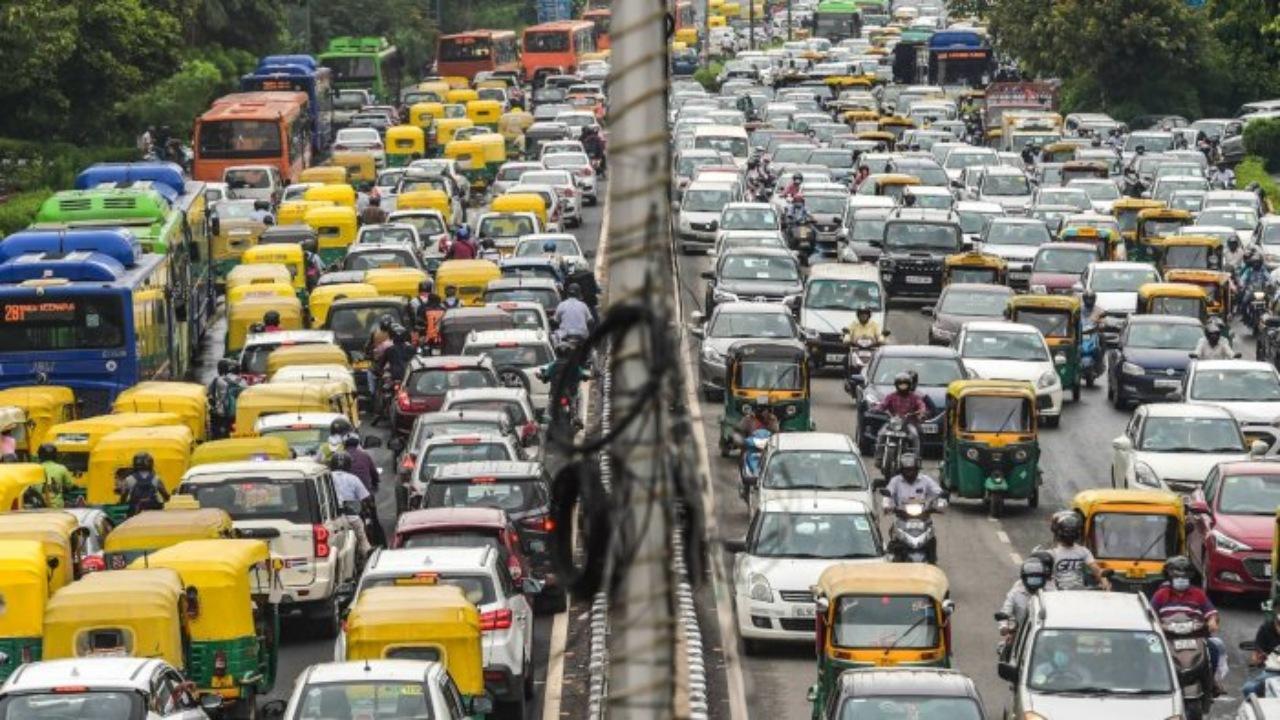Researchers at the Indian Institute of Technology (IIT) Madras have developed a possible solution to traffic snarls on Indian roads through the use of a probe-based approach for real-time "re-timing" of traffic signals

A view of a massive traffic jam in ITO in New Delhi. Credit: PTI File Photo
Researchers at the Indian Institute of Technology (IIT) Madras have developed a possible solution to traffic snarls on Indian roads through the use of a probe-based approach for real-time "re-timing" of traffic signals.
ADVERTISEMENT
According to officials, this is probably the first time a probe-based, demand-responsive signal control has been developed for Indian conditions.
The researchers conducted a study in which travel-time data from four sample-probe vehicles were used to calculate "Green" and "Red" timings for each signal cycle.
A signal cycle is the time between one 'green' signal to the next 'green' signal or one 'red' signal to the next 'red' signal for a selected movement.
"While a lot of time, effort and money have been spent on experimenting with 'off-the-shelf' traffic-responsive signalling software from abroad, these have not worked well in Indian traffic conditions, since their implementation required a number of sensors and large traffic stream data, which was not easy to collect," said Lelitha Vanajakshi, Ministry of Road Transport and Highways (MoRTH) Chair Professor at IIT Madras.
"Moreover, these software were rarely flexible for incorporating Indian traffic characteristics in their algorithms, resulting in excessive queues and delays at the intersection, in spite of large capital investments," Vanajakshi added.
The findings have been published in the International Journal of Transportation Research.
"The traffic composition in India is very different from that in the Western countries. In India, the traffic is usually referred to as belonging to the category of mixed traffic conditions, with a variety of vehicle classes juxtaposed with lane-free movement.
"Therefore, in this study, the effect of composition has been included in the algorithms, which makes it versatile for use across different cities with varying vehicle compositions," said Bhargava Rama Chilukuri, Faculty, Department of Civil Engineering, IIT Madras.
Also read: Mumbai: Sameer Wankhede once again summoned by CBI for questioning on May 24
In the study, the researchers have used travel-time data -- which is invariant to the vehicle class -- instead of the traditional input, which is traffic flow. This makes the algorithms easy to implement with a variety of probe-based data sources such as Bluetooth, Wi-Fi, and radio frequency identification scanners.
"Another advantage is that these data sources are low-cost, efficient, and can collect travel information of large samples of vehicles for traffic-control applications. We formulated a mathematical optimization problem that uses the sample travel-time data to compute optimal 'green' and 'red' durations, such that the varying traffic demand is met, while ensuring minimal queues and delays.
"This algorithm can also be extended to over-saturated intersections and optimum signal coordination across a series of intersections, which present themselves as areas of future research," Chilukuri said.
This story has been sourced from a third party syndicated feed, agencies. Mid-day accepts no responsibility or liability for its dependability, trustworthiness, reliability and data of the text. Mid-day management/mid-day.com reserves the sole right to alter, delete or remove (without notice) the content in its absolute discretion for any reason whatsoever.
 Subscribe today by clicking the link and stay updated with the latest news!" Click here!
Subscribe today by clicking the link and stay updated with the latest news!" Click here!







